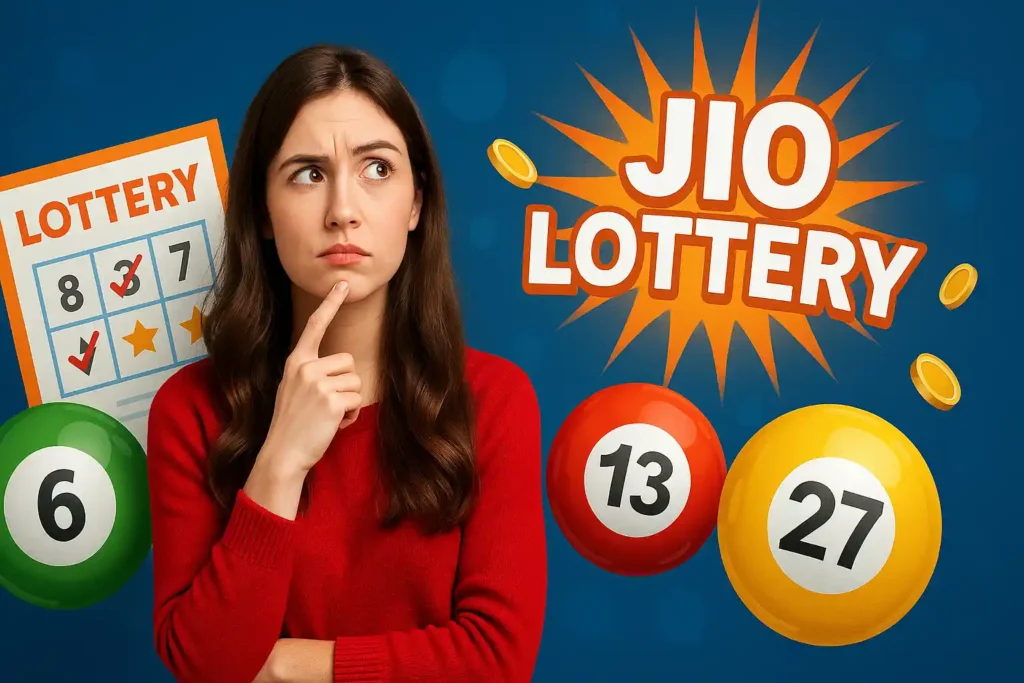This investigation report examines the complex reality of the ‘Jio Lottery’. We differentiate between genuine promotional activities by Reliance Jio and widespread fraudulent schemes. While Reliance Jio occasionally offers legitimate prizes and benefits, the term “Jio Lottery” is more often linked with scams.
Our goal is to provide a clear picture for consumers in 2025. This report offers essential insights to distinguish authentic offers from deceptive fraud.
How Fraudsters Operate
Scammers typically initiate contact through WhatsApp messages, SMS, or phone calls. They falsely claim victims have won a ‘Jio Lucky Draw’ or ‘KBC Jio Lottery,’ promising substantial cash prizes.
To release these supposed winnings, they demand upfront ‘processing fees,’ ‘GST,’ or ‘tax clearance.’ These payments are usually requested via transfers to personal bank accounts or digital platforms.
Fraudsters often impersonate officials from Jio, Kaun Banega Crorepati (KBC), government agencies, or even the Reserve Bank of India to appear credible. They use fake certificates and ID cards, sometimes resorting to threats of legal action against victims. Many victims report making multiple small payments under various pretexts.
Red Flags of a Jio Lottery Scam:
- Unsolicited Contact: Messages or calls announcing a lottery win you didn’t enter.
- Upfront Fees: Any demand for money (e.g., “processing fees,” “GST,” “tax clearance”) to claim a prize. Legitimate lotteries never ask for advance payments.
- Suspicious Origins: Calls often originate from international numbers, such as those with the +92 country code (Pakistan).
- Grammatical Errors: Scam messages frequently contain poor drafting and grammatical mistakes.
- Urgency and Secrecy: Fraudsters often create a sense of urgency or insist on secrecy to prevent victims from verifying claims.
- Requests for Personal Data: Asking for sensitive information like Aadhaar, PAN, or bank details via unofficial channels.

The Legal Landscape and Official Responses
While no direct, specific bans against “Jio Lottery” scams appear on official Indian government (.gov.in) or RBI (.rbi.org.in) domains, numerous user complaints detail significant financial losses. Investigations show no direct links between “Jio Lottery” and major financial crimes like money laundering in official financial news.
However, the Ministry of Electronics and Information Technology (MeitY) has actively blocked numerous online betting and gaming websites. MeitY recently notified draft rules that propose banning all wagering and betting-based online money games, establishing a new central regulator for online gaming.
Crucially, Reliance Jio has explicitly clarified that it never solicits money for prizes in any legitimate scheme. They urge users to report suspicious calls, especially those from numbers with the +92 code, by dialing 1930 or visiting cybercrime.gov.in.
The Press Information Bureau (PIB) also confirmed that claims of KBC and Reliance Jio jointly organizing a lottery for ₹25 lakh are fake.
The Real-World Impact: Financial and Cyber Risks
Victims frequently report substantial financial losses, often ranging from ₹25,000 to ₹83,000. Many express deep frustration over their inability to recover funds, despite reporting incidents to authorities.
Beyond monetary loss, malicious software like ‘JioTower.apk’ banking malware has been identified. This malware is designed to steal sensitive data, including SMS, Aadhaar/PAN, bank details, and One-Time Passwords (OTPs), by exploiting remote desktop protocols.
General online lottery apps, especially those from unofficial sources, also pose risks. They often request intrusive permissions and collect extensive user data, increasing the potential for data breaches and cyberattacks by soliciting personal financial information.
Investigation Conclusion: A Widespread Fraud
Our comprehensive investigation confirms that ‘Jio Lottery’ schemes demanding upfront payments are overwhelmingly fraudulent. These schemes are designed purely to defraud individuals.
Reliance Jio’s official stance—that it never asks for money to claim prizes—and numerous consistent user complaints across various platforms solidify this conclusion.
Consumers are advised to exercise extreme caution. Any legitimate prize scheme will never require winners to pay to claim winnings. A demand for an upfront “processing fee,” “GST,” or “tax clearance” is a definitive sign of fraud.
Real vs. Fake Jio Lottery
| Feature | Genuine Jio Promotion | Fake Jio Lottery Scam |
|---|---|---|
| Contact Method | Official MyJio App, Jio website, official customer care | WhatsApp, SMS, unknown calls (often +92 numbers) |
| Payment for Prize | Never requires upfront payment | Always demands “processing fees,” “GST,” or “tax” |
| Information Asked | Limited, for verification within official channels | Demands sensitive personal/banking details |
| Source Verification | Easily verifiable through official Jio channels | Often uses fake documents, impersonates officials |
| Communication Style | Professional, clear language | Poor grammar, urgency, threats, insistence on secrecy |
| Associated Apps | MyJio App (official) | Requests download of suspicious third-party apps |
Vikash Sharma is an expert in online scam analysis and colour prediction game reviews, backed by 3+ years of industry experience. He operates a dedicated review website that helps users navigate the colour prediction ecosystem safely. Vikash’s mission is to educate, protect, and empower online players through transparent evaluations.
